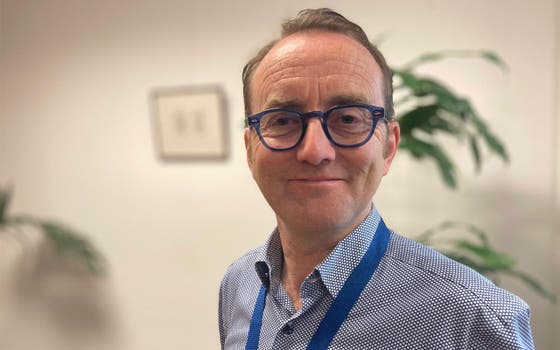New professor of Reproductive Medicine started

Lees artikel in het Nederlands >
UMC Utrecht has appointed Willem Verpoest as Professor of Reproductive Medicine from 1 April 2024. The professorship, which falls under the strategic theme Child Health, will, among other things, contribute to the development of pre-implantation diagnostics.
Willem Verpoest's years of clinical experience and broad scientific knowledge on this topic are of great value for people with hereditary diseases and a desire to have children.Within the Netherlands, UMC Utrecht is one of the leading treatment centres for children and young adults with severe hereditary disorders. Appropriate guidance in the period before pregnancy until the 10th week of pregnancy and research into the long-term consequences of a serious hereditary defect are crucial for them. UMC Utrecht has the right facilities, capabilities and licences for clinical genetics and In vitro fertilisation (IVF).
Academic excellence
Willem Verpoest obtained his PhD in 2010 and worked as department head of Reproduction and Genetics at Brussels IVF with a team of 180 researchers and healthcare professionals for an annual number of IVF cycles of 5500+ of which 900+ PGT cycles. He is an expert on reproductive genetics, PGT (preimplantation genetic testing) and reproductive immunology. He was president and member of the Society for Fertility Study VFS, the Flemish Working Group on Reproductive Medicine (VWRG) and currently president of the Belgian Society for Reproductive Medicine. He is internationally recognised as a clinical scientist in reproductive medicine with considerable expertise and he says he is delighted to join the Gynaecology-Obstetrics team at UMC Utrecht.
The chair contributes strongly to the life course philosophy within the Wilhelmina Children's Hospital with the issue of transmission of a problem from generation to generation. Children with chronic diseases are increasingly reaching adulthood. This applies, for example, to people with Cystic Fibrosis, muscle disease SMA or hereditary breast and ovarian cancer. Those who face the drastic consequences of such a serious disease every day want to protect their future children from it.
Couples who are at high risk of having a child with a serious hereditary disorder or who have a high risk of miscarriage due to a chromosomal abnormality can receive ivf treatment. In the ivf laboratory, eggs and sperm are brought together so that fertilisation can take place. In pre-implantation genetic testing, one or more cells are taken from each embryo. The laboratory tests those cells for the hereditary condition. An embryo without the hereditary predisposition for the disease the couple wants to avoid is then placed in the uterus. This can prevent parents from passing on a serious hereditary disorder to their children.
Willem is looking forward to it: "It is quite an honour to follow in the footsteps of my important predecessors, but especially to start working with this dynamic team in healthcare, education and research."
